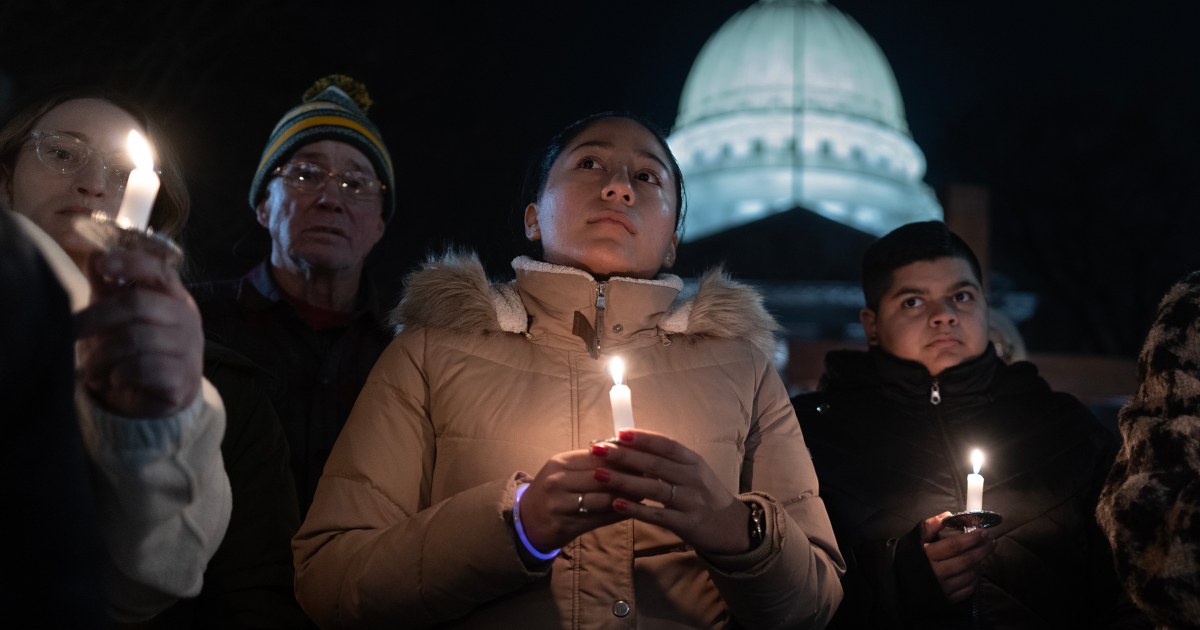ALBANY – In the waning days of the Albany legislative session, the Democratic-controlled Legislature is considering a series of 11th-hour changes that would weaken reforms to New York’s campaign finance system, according to a government watchdog group.
The changes would dilute a new program intended to reduce the influence of major campaign donors in New York elections, according to John Kaehny, executive director of the government reform group Reinvent Albany.
When the new program begins, small donations to candidates for statewide office or the Legislature will be matched with taxpayer dollars. But advocates for the program are concerned it could be defunded or delayed past 2024.
Kaehny told The Buffalo News that he has been briefed on the changes by lawmakers or staff from the Assembly and State Senate.
“They’re looking to do some major backroom political surgery on the most important voting and democracy initiative in New York of the past decade,” Kaehny said. “It’s been discussed in conference in both Senate and Assembly, at length. The word we have is that they have at least nine specific changes.”
People are also reading…
Three legislative sources confirmed that major changes were being considered to the publicly-funded elections program, which, in its current form, would match small-dollar campaign donations to candidates with generous taxpayer funding.
One change being considered would make high-dollar donations to candidates eligible for taxpayer matching funds. The second would raise the threshold for a candidate to be able to qualify for such funding.
While practical reasons are being cited for the possible changes, raw politics is also part of the equation. For majority State Senate Democrats in swing districts, there is concern that the program will benefit Republican challengers. For majority Assembly Democrats, the new program could well boost primary challengers.
During the state budget process that concluded in April, Democrats that control the Legislature had considered delaying the new program, which took effect in January, ahead of its first run during the 2024 elections. But the Legislature ultimately did not delay the program, and instead may be poised to make a series of changes to it.
If the changes are now passed as standalone legislation before the scheduled end of the legislative session in one week, Gov. Kathy Hochul would have to decide whether to sign or veto them.
A spokesman for Senate Majority Leader Andrea Stewart-Cousins declined to comment. A spokesman for Assembly Speaker Carl Heastie did not immediately respond to questions.
One change in the works would implement a proposal previously introduced as a bill by Bronx Democratic Assembly Member Jeffrey Dinowitz.
Under the current law, a $250 donation to an Assembly candidate would spur $2,300 in additional taxpayer matching funds to that candidate. But a donation over $250 receives no matching funds at all, a cutoff that is meant to spur reliance on small dollar contributions of $250 or less. Dinowitz’s bill would make it so much larger contributions – up to the legal limits for various offices – would also see the first $250 matched with taxpayer funds.
According to a legislative source, multiple ideas related to changing that portion of law were discussed within the Senate in recent weeks, not just Dinowitz’s proposal.
But based on discussions with lawmakers and staff, Reinvent Albany believes the proposal set to now come out of the Legislature mirrors Dinowitz’s.
Also being considered, according to both Reinvent Albany and the three legislative sources, is a change that would raise the number of in-district donors and total donation amounts needed to qualify for matching funds.
The shift could make it more difficult for incumbents’ opponents to qualify for the public matching funds.
The rationale for the change would be ensuring that only “serious” candidates for office can receive the program’s generous taxpayer funding. If candidates that are not viable can receive hundreds-of-thousands of dollars, that threatens the program’s overall viability, according to proponents of changing the law.

A major change to New York’s campaign finance law has taken effect, with the aim of reducing donors’ influence on state government. But one type of fundraising account remains untouched – and the fundraising powers of state political parties are only growing.
According to Reinvent Albany, also being considered is an increase in the amount of time candidates have to cure accounting mistakes from 30 days to 90 days; and eliminating the requirement that candidates return all public match funds after an election.
New York City’s decades-old publicly-financed elections system, which reform advocates view as a model, requires curing of accounting errors within 30 days, and requires candidates to return unspent matching funds, according to Reinvent Albany.
Democrats have historically been more ideologically disposed to publicly-funded elections than Republicans, and Democrats hold supermajorities in both the Assembly and Senate. Still, some Democrats in both conferences have privately expressed discomfort with the new program, which was created under a 2020 state law pushed through by former Gov. Andrew Cuomo.
Assembly Democrats had initially expressed concern that an ongoing legislative redistricting process could make the program untenable for 2024, though Heastie said in late March that “the issue of the Assembly lines is not a factor,” and there are “ways to deal with it.”
Some lawmakers are confused about the new program’s rules. Primarily, they worry about whether an entity run out of the State Board of Elections will be able to handle administering them. And because the new law lowers donation limits for lawmakers, go-to sources of contributions, such as lobbyists and unions, will be able to give far less. Instead, veteran lawmakers unaccustomed to broadly soliciting contributions may well have to expand their networks.
Some advocates for the program believe that the main issue is that public matching funds will even the electoral odds between incumbents – who historically have enjoyed a fundraising advantage – and challengers.
Even with a fundraising advantage, veteran Assembly Democrats have lost primaries in recent years, often to candidates running to their political left and backed by the Democratic Socialists of America. In Assembly primaries, where only a few thousand voters may determine the outcome, the matching funds program would allow challengers to run more robust campaigns.
In the State Senate, primaries are often less of a concern for Democrats than general elections. In recent cycles, Democrats have enjoyed a fundraising advantage over Republicans in swing districts, but that could be diminished by the matching funds program. That has caused some Senate Democrats in swing districts to privately raise concerns about the program.
“This is definitely not just an Assembly thing,” Kaehny said of the possible changes. “This is clearly on the Senate side, too”




























/cdn.vox-cdn.com/uploads/chorus_asset/file/25782636/247422_ChatGPT_anniversary_CVirginia.jpg)
/cdn.vox-cdn.com/uploads/chorus_asset/file/25789444/1258459915.jpg)

/cdn.vox-cdn.com/uploads/chorus_asset/file/25546252/STK169_Mark_Zuckerburg_CVIRGINIA_D.jpg)

